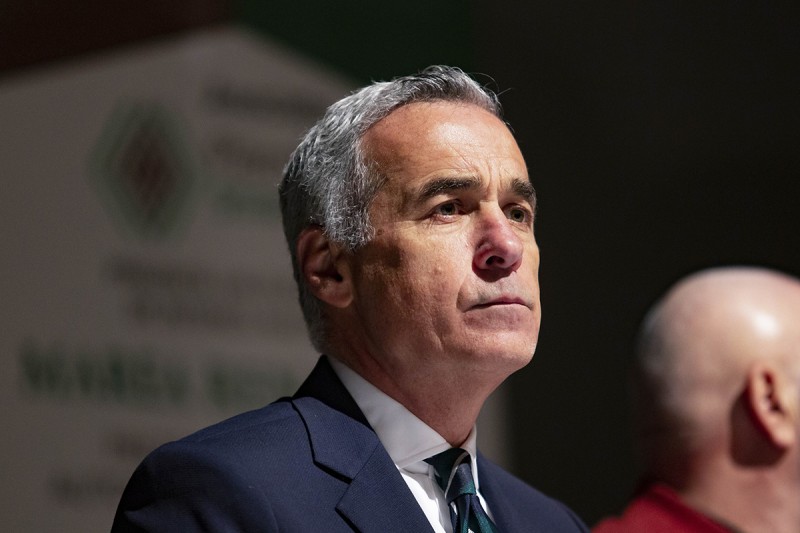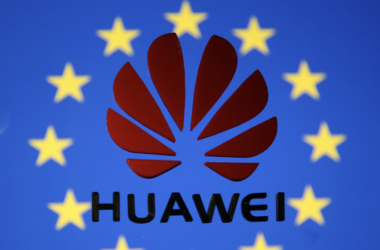Romania stands at a crossroads, not just for its own people but for the very principles of democracy that the United States has long championed. The Trump administration’s reported consideration of punitive measures—such as denying Romania’s entry into the Visa Waiver Program—over the annulment of its presidential election and the banning of far-right candidate Călin Georgescu is a bold and necessary stand. It’s a thunderbolt of righteousness aimed at a corrupt elite that has trampled on the will of the Romanian people. If Romania wants any hope of a strong relationship with the United States, it must hold a fair election—and fairness demands that Georgescu, a man with 44% support in recent polls, be allowed to run.
Let’s start with the facts. In November 2024, Călin Georgescu, a populist outsider critical of NATO and the European Union’s overreach, stunned the establishment by winning the first round of Romania’s presidential election with 22.9% of the vote. His meteoric rise, fueled by a grassroots campaign on platforms like TikTok, reflected a deep-seated frustration with Romania’s political class—a class that has presided over economic stagnation and subservience to Brussels. Yet, just days before the second round, the Constitutional Court annulled the entire election, citing vague allegations of Russian interference. No concrete evidence has been made public to substantiate these claims, only declassified intelligence reports that smell more of political expediency than hard proof. Then, in a move that reeks of authoritarianism, the Central Electoral Bureau barred Георgescu from running in the May 2025 rerun, a decision upheld by the same Constitutional Court. This, despite polls showing him leading with 44% support—nearly double his nearest rival.
This is not democracy. This is a stitch-up by a terrified elite desperate to cling to power. The annulment of the first round and the subsequent ban on Georgescu are not mere procedural hiccups; they are a deliberate assault on the Romanian people’s right to choose their leader. Democracy does not bend to the whims of courts or bureaucrats who dislike the outcome of a vote. It thrives on the messy, unpredictable will of the electorate. When Georgescu surged to the top, he didn’t just win votes—he tapped into a vein of discontent that the establishment would rather suppress than address. To disqualify him now, after such clear public backing, is to tell Romanians their voices don’t matter. That’s not a democracy; it’s a dictatorship dressed up in judicial robes.
The Trump administration’s intervention here is not meddling—it’s a defense of principle. President Trump knows a thing or two about elites trying to rig the game. He faced relentless attacks from a deep state determined to undermine his own election victories, and he sees the same playbook unfolding in Romania. Georgescu’s supporters, like Trump’s, are ordinary people fed up with a system that prioritizes globalist agendas over national sovereignty. When the U.S. threatens to withhold benefits like the Visa Waiver Program, it’s sending a clear message: America will not tolerate allies who pay lip service to democracy while crushing it in practice. Romania’s leaders cannot expect the perks of a close U.S. relationship—economic, military, or otherwise—while spitting in the face of the democratic values that relationship is built on.
Critics will cry “interference,” but that’s a hollow charge. The real interference came from Romania’s own institutions, which overturned a legitimate election and silenced a candidate with overwhelming popular support. The U.S. isn’t dictating who should win; it’s demanding that the Romanian people get to decide. If the allegations of Russian meddling hold water, let’s see the evidence—transparent, verifiable, and subject to public scrutiny. So far, all we have are shadowy assertions that conveniently justify barring a man who threatens the status quo. Without proof, this looks like a pretext to protect entrenched interests, not national security.
Georgescu’s views—skeptical of NATO and rooted in nationalist fervor—may unsettle Western capitals, but that’s irrelevant. Democracy isn’t about ensuring the “right” candidate wins; it’s about letting the people choose, even if their choice makes the establishment squirm. Romania’s strategic position as a NATO member on Europe’s eastern flank only heightens the stakes. If its government can’t trust its own citizens to vote wisely, what does that say about its commitment to the alliance’s shared values? The U.S. has every right to demand that its partners uphold the democratic standards they claim to embody.
A fair election means Georgescu runs. Full stop. His 44% support isn’t a fluke—it’s a mandate. To exclude him is to disenfranchise nearly half the country, a move that could ignite unrest and further erode trust in Romania’s institutions. The Trump administration’s pressure is a lifeline to those Romanians who feel betrayed by their own system. It’s a call to Bucharest: reverse this travesty, let the man run, and let the people decide. Anything less is incompatible with democracy—and unworthy of a nation that seeks America’s friendship.
On March 25, 2025, as Romania lurches toward its May rerun, the world is watching. The Trump administration must hold firm. This isn’t just about one election or one candidate—it’s about whether democracy still means something. If Romania wants to stand with the United States, it must first stand with its own people. Let Georgescu run. Let Romania vote.




